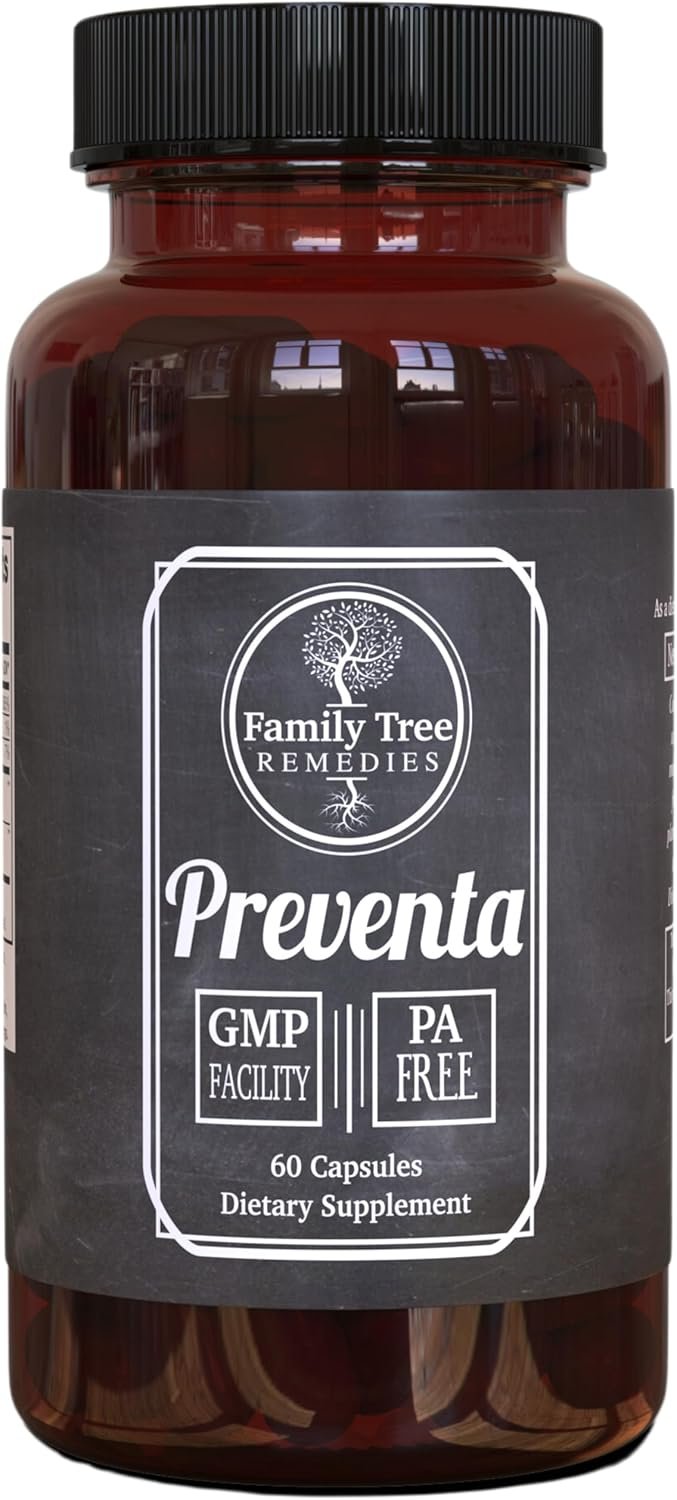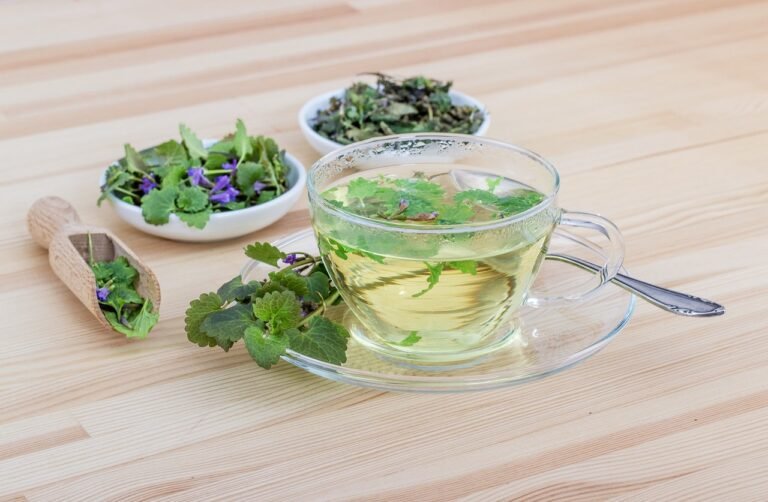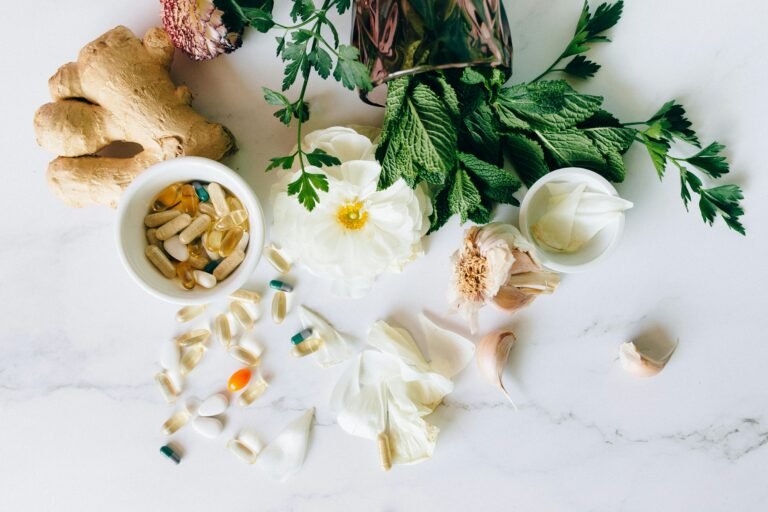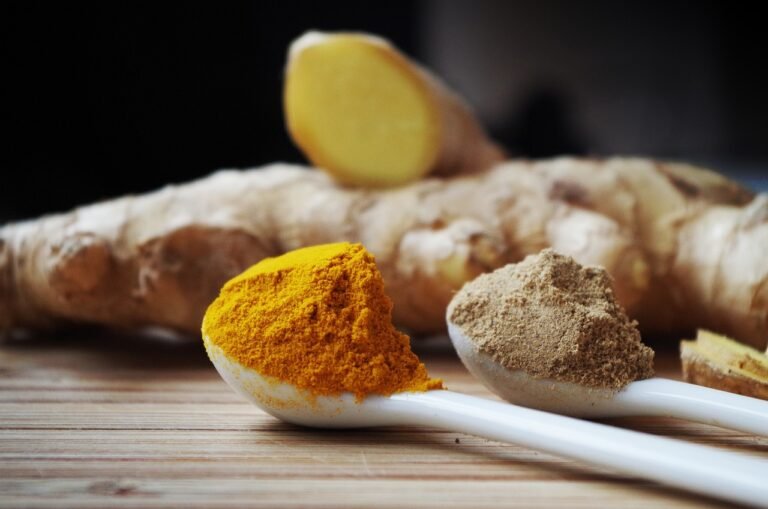Herbs for Headaches: Natural Remedies for Pain Relief
Headaches are like uninvited guests who show up at the worst possible times. It can turn your day into a struggle through fog and discomfort. If you’ve ever battled with that persistent throb or pesky pounding, you know the desperation to find something effective yet gentle. In this blog post, I will go deep into the leafy legends of the herbal world, like feverfew and butterbur, that promise to be your knights in shining armor against migraines and tension headaches. Sipping a soothing cup of herbal tea or breathing in calming aromas, we can let nature’s own potions weave their magic. This guide will walk you through the best herbs nature has to offer, from swift DIY remedies to long-term herbal management for chronic headaches. So, why pop another pill when Mother Nature’s pharmacopeia is at your fingertips? Let’s explore these natural pain relief heroes, crafting your personal herbal toolkit for headache relief.

Best Herbs for Natural Headache Relief
Feverfew for Migraine Reduction
Feverfew is a natural way to tackle those relentless migraines. This daisy-like plant has been traditionally used to reduce the frequency and severity of migraines. It contains parthenolide, a compound that helps tame inflammation in blood vessels. You know how those stubborn head thumpers can be temperamental! Regular consumption might just make them less frequent. [Source: National Center for Complementary and Integrative Health]

MIGRAINE & HEADACHE RELIEF – A comforting herbal blend to prevent migraines and help provide relief from migraines and headaches by helping reduce pain and inflammation.

Maximum Strength Brain Health: Our headache vitamin utilizes a unique blend of the highest-grade natural ingredients, vitamins, and minerals recommended for migraine sufferers. A great choice for those looking to support neurological wellness for women & men alike.
Holistic Support: Our plant-based formula combines pa-free butterbur root, feverfew, riboflavin (vitamin b2) and magnesium- expertly crafted to support the unique needs of migraine and chronic daily headache sufferers!
Butterbur for Tension Headaches
Tension headaches are like little storms brewing in your head, and butterbur is the umbrella you didn’t know you needed. Historically, butterbur has been used to soothe muscle spasms and reduce inflammation. Studies suggest that this herb helps relax the tight muscles that can exacerbate tension headaches, offering a gentle relief. [Source: American Migraine Foundation]

✅ 𝐍𝐀𝐓𝐔𝐑𝐄 𝐆𝐎𝐎𝐃𝐍𝐄𝐒𝐒: Experience the power of nature with Butterbur and Feverfew, carefully combined to create a natural analgesic and headache suppressor for pain relief.
✅ 𝐇𝐈𝐆𝐇 𝐀𝐁𝐒𝐎𝐑𝐁𝐀𝐁𝐈𝐋𝐈𝐓𝐘: Our 90 VCaps feature a high-absorbable formula, ensuring efficient delivery of the beneficial properties of Butterbur and Feverfew, supported by natural cofactors.
✅ 𝐍𝐎𝐍-𝐆𝐌𝐎 𝐂𝐀𝐏𝐒𝐔𝐋𝐄: Trust in the purity of our product, crafted with a commitment to being non-GMO. Embrace the natural benefits without the presence of genetically modified organisms.
✅ 𝐆𝐋𝐔𝐓𝐄𝐍-𝐅𝐑𝐄𝐄 𝐖𝐄𝐋𝐋𝐍𝐄𝐒𝐒: Made for a gluten-free diet, these unflavored capsules cater to individuals seeking a natural and wholesome approach to pain management.
How to Use Herbs for Headaches
Preparing Herbal Teas for Fast Relief
When a headache hits, brewing an herbal tea can be as comforting as a warm hug. Just steep a tablespoon or a tea bag in hot water for 10 minutes. The steam and aroma do wonders, soothing your senses and easing the headache.
Using Aromatherapy for Soothing Headache Pain
Aromatherapy is like Beyoncé for headaches—powerful and effective. Lavender and peppermint essential oils are stars here. Simply inhaling their scent or applying a few drops on your temples can provide instantaneous relief. It’s as if these oils sing a calming lullaby to your aching head.
DIY Herbal Headache Remedies
Making Herbal Compresses for Pain Relief
Herbal compresses are like tiny pillows of relief. Just soak a cloth in hot herbal infusion and place it on your forehead. Try using rosemary or ginger for their anti-inflammatory properties. It’s an old-school remedy that tucks you into relief in no time.
Using Essential Oils for Targeted Relief
Besides smelling divine, essential oils know their way around a headache. Applying diluted oils like peppermint or lavender on pulse points can de-escalate the pressure. Peppermint oil is one of the most commonly used essential oils for headaches[Source: Healthline] It contains menthol, which can help relax muscles and ease pain. Applying diluted peppermint oil to the temples and forehead may help ease tension headaches.
There’s strong evidence that lavender can help treat headaches and migraines. One study found that inhaling lavender essential oil can be effective in the acute management of migraine attacks. [Source:PubMed]
Long-Term Headache Management with Herbs
Preventing Migraines with Regular Herbal Use
Regular herbal use, such as incorporating ginger or turmeric in your diet, can be your long-term strategy against migraines. Their natural anti-inflammatory properties can keep those headaches at bay before they spoil your plans. [Source: National Institute of Neurological Disorders and Stroke]
Tracking the Effects of Herbal Remedies on Chronic Headaches
Keeping a journal of your headache escapades can be enlightening. Record what you’ve used and the outcomes. This helps pinpoint which herbs are your go-to warriors and which might need to retreat. It is your herbal battle log to victory.
FAQs About Herbs for Headaches
1. Can herbs completely cure headaches?
Herbs can aid in alleviating and reducing the frequency, but they may not cure every type of headache entirely.
2. How soon can I expect relief with herbal remedies?
Relief can vary, often depending on your body’s response and the herb used. Some may feel better in minutes, others might take longer.
3. Are herbal remedies safe for everyone?
Generally, herbs are safe but always consult with a healthcare provider, especially if you’re pregnant, nursing, or on medication.
4. Can I use multiple herbs at once?
Combining herbs can enhance their effects, but be cautious and informed about potential interactions.
5. What’s better for a rapid relief, tea or essential oils?
Both are effective; herbal teas provide soothing warmth, while essential oils offer quick, direct relief.
Remember, herbs for headaches are nature’s gentle nudge to comfort, but always listen to your body. And when in doubt, professional advice is always a good idea.
Sources:
1. National Center for Complementary and Integrative Health – Feverfew [https://www.nccih.nih.gov/health/feverfew]
2. American Migraine Foundation – Butterbur [https://americanmigrainefoundation.org/resource-library/butterbur-for-migraine]
3. National Institute of Neurological Disorders and Stroke – Migraine [https://www.ninds.nih.gov/Disorders/Patient-Caregiver-Education/Fact-Sheets/Migraine]





